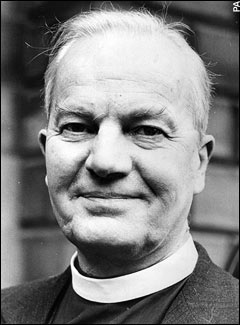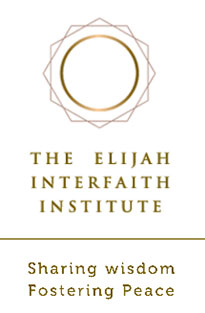
The World Council of Churches (WCC) is a worldwide Christian inter-church organization founded in 1948 to work for the cause of ecumenism. Its full members today include the Assyrian Church of the East, the Oriental Orthodox Churches, most jurisdictions of the Eastern Orthodox Church, the Union of Utrecht, the Lutheran World Federation, the Anglican Communion, the Mennonite churches, the World Methodist Council, the Baptist World Alliance, the World Communion of Reformed Churches, the Pentecostal churches, the Moravian Church and the Malankara Mar Thoma Syrian Church. Notably, the Catholic Church is not a full member, although it sends delegates who have observer status to meetings.

Ecumenism – also called interdenominationalism, or ecumenicalism – is the concept and principle that Christians who belong to different Christian denominations should work together to develop closer relationships among their churches and promote Christian unity. The adjective ecumenical is thus applied to any non-denominational or inter-denominational initiative which encourages greater cooperation and union among Christian denominations and churches. Ecumenical dialogue is a central feature of contemporary ecumenism.

The National Council of the Churches of Christ in the USA, usually identified as the National Council of Churches (NCC), is the largest ecumenical body in the United States. NCC is an ecumenical partnership of 38 Christian faith groups in the United States. Its member communions include mainline Protestant, Eastern Orthodox, Oriental Orthodox, African-American, evangelical, and historic peace churches. Together, it encompasses more than 100,000 local congregations and 40 million adherents. It began as the Federal Council of Churches in 1908, and expanded through merger with several other ecumenical organizations to become the National Council of Churches in 1950. Its Interim President and General Secretary is Bishop Vashti Murphy McKenzie.
The Standing Conference of the Canonical Orthodox Bishops in the Americas (SCOBA) was an organization of bishops from Eastern Orthodox Christian jurisdictions in the Americas. It acted as a clearinghouse for educational, charitable, and missionary work in the Americas. In 2010, it was replaced by the Assembly of Canonical Orthodox Bishops of North and Central America.
The Catholic Theological Society of America (CTSA) is a professional association of Catholic theologians founded in 1946 to promote studies and research in theology within the Catholic tradition. Its members are primarily in the United States and Canada.
In Christian theology, kenosis is the "self-emptying" of Jesus. The word ἐκένωσεν is used in the Epistle to the Philippians: "[Jesus] made himself nothing" (NIV), or "[he] emptied himself" (NRSV), using the verb form κενόω, meaning "to empty".

Princeton Theological Seminary (PTSem), officially The Theological Seminary of the Presbyterian Church, is a private school of theology in Princeton, in the U.S. state of New Jersey. Established in 1812, it is the second-oldest seminary in the United States, founded under the auspices of Archibald Alexander, the General Assembly of the Presbyterian Church (USA), and the College of New Jersey. It is also the largest of ten seminaries associated with the Presbyterian Church.

Thomas Forsyth Torrance, commonly referred to as T. F. Torrance, was a Scottish Protestant theologian and Presbyterian minister. He was a member of the famed Torrance family of theologians. Torrance served for 27 years as professor of Christian dogmatics at New College, in the University of Edinburgh. He is best known for his pioneering work in the study of science and theology, but he is equally respected for his work in systematic theology.

The Canadian Council of Churches is a broad and inclusive ecumenical body, now representing 26 member churches including Anglican; Eastern and Roman Catholic; Evangelical; Free Church; Eastern and Oriental Orthodox; and Historic Protestant traditions. Together these member churches represent 13,500 worshiping communities and comprise 85% of the Christians in Canada.

David Shlomo Rosen KSG CBE is an English-Israeli rabbi and interfaith peacemaker. He was Chief Rabbi of Ireland (1979–1985) before relocating permanently to Israel in 1985. He has taken leave from his position as AJC’s International Director of Interreligious Affairs in order to serve as Special Advisor to the Abrahamic Family House in Abu Dhabi. From 2005 until 2009 he headed the International Jewish Committee for Inter-religious Consultations (IJCIC), the broad-based coalition of Jewish organizations and denominations that represents World Jewry in its relations with other world religions.
The Federal Council of Churches, officially the Federal Council of Churches of Christ in America, was an ecumenical association of Christian denominations in the United States in the early twentieth century. It represented the Anglican, Baptist, Eastern Orthodox, Lutheran, Methodist, Moravian, Oriental Orthodox, Polish National Catholic, Presbyterian, and Reformed traditions of Christianity. It merged with other ecumenical bodies in 1950 to form the present day National Council of Churches.

Charles Habib Malik was a Lebanese academic, diplomat, philosopher, and politician. He served as the Lebanese representative to the United Nations, the President of the Commission on Human Rights and the United Nations General Assembly, a member of the Lebanese Cabinet, the head of the Ministry of Culture and Higher Education and of the Ministry of Foreign Affairs and Emigration, as well as being a theologian. He participated in the drafting of the 1948 Universal Declaration of Human Rights.
Eastern Orthodoxy in North America represents adherents, religious communities, institutions and organizations of Eastern Orthodox Christianity in North America, including the United States, Canada, Mexico, Central America, and the Caribbean. Estimates of the number of Eastern Orthodox adherents in North America vary considerably depending on methodology.

Anglican interest in ecumenical dialogue can be traced back to the time of the Reformation and dialogues with both Orthodox and Lutheran churches in the sixteenth century. In the nineteenth century, with the rise of the Oxford Movement, there arose greater concern for reunion of the churches of "Catholic confession". This desire to work towards full communion with other denominations led to the development of the Chicago-Lambeth Quadrilateral, approved by the Third Lambeth Conference of 1888. The four points were stipulated as the basis for church unity, "a basis on which approach may be by God's blessing made towards Home Reunion":
Uniatism, method of union of the past, and the present search for full communion, also known as the Balamand declaration and the Balamand document, is a 1993 report written by the Joint International Commission for Theological Dialogue Between the Catholic Church and the Orthodox Church during its 7th plenary session at University of Balamand's Balamand School of Theology in Lebanon. The report discusses ecclesiological principles and suggests practical rules for both the Catholic Church and the Eastern Orthodox Churches to implement about improving relations by reciprocally avoiding interfering in each other's Churches and not using history in a polemical manner. According to Cardinal Edward Cassidy, the report contains three principles: that individuals have the freedom to follow their conscience, that Eastern Catholic Churches have the right to exist, and that uniatism is not the current method of full communion; and two conclusions: that the Catholic Church and the Eastern Orthodox Churches are "Sister Churches" and that rebaptism should be avoided. The Eastern Catholics rejected the report "because it seemed to imply they should never have existed in the first place" while the Eastern Orthodox rejected it because it did not call for the abolition of the Eastern Catholic Churches.
Phyletism or ethnophyletism is the principle of nationalities applied in the ecclesiastical domain: in other words, the conflation between church and nation. The term ethnophyletism designates the idea that a local autocephalous church should be based not on a local (ecclesial) criterion, but on an ethnophyletist, national or linguistic one. It was used at the local council held in Constantinople on 10 September 1872 to qualify "phyletist (religious) nationalism", which was condemned as a modern ecclesial heresy: the church should not be confused with the destiny of a single nation or a single race.

Vilakuvelil Cherian Samuel (1912–1998), called Samuel Achen was an Indian Christian philosopher, scholar, university professor, theologian, historian, polyglot and ecumenical leader. He was a priest of the Indian Orthodox Church. He was the author of many doctrinal books and papers including The Council of Chalcedon Re-Examined: Historical Theological Survey.

Elijah Interfaith Institute is a nonprofit, international, UNESCO-sponsored interfaith organization founded by Alon Goshen-Gottstein in 1997. The organization is headquartered in Jerusalem, with offices and representatives in different countries,
Consortium for Global Education (CGE) is an organization of private accredited universities in the United States and affiliated partner universities overseas, located in Atlanta, Georgia. Each member of the consortium is committed to a high value of quality academic education and supports the internationalization of higher education through student and faculty global participation. The CGE creates opportunities for faculty and students in key nations and provides opportunities for short term, semester, and summer study abroad programs.
Robert Cooley Angell was an American sociologist and educator. Committed to the advancement of rigorous social scientific research, Angell's work focussed on social integration and the pursuit of a more peaceful world order. Professor Angell enjoyed the highest honors which his discipline bestowed, presiding over both the American Sociological Society (1951) and the International Sociological Association (1953–1956). As a devoted educator, Angell was instrumental in developing the Honors Program at the University of Michigan, becoming its first director from 1957–1960.











